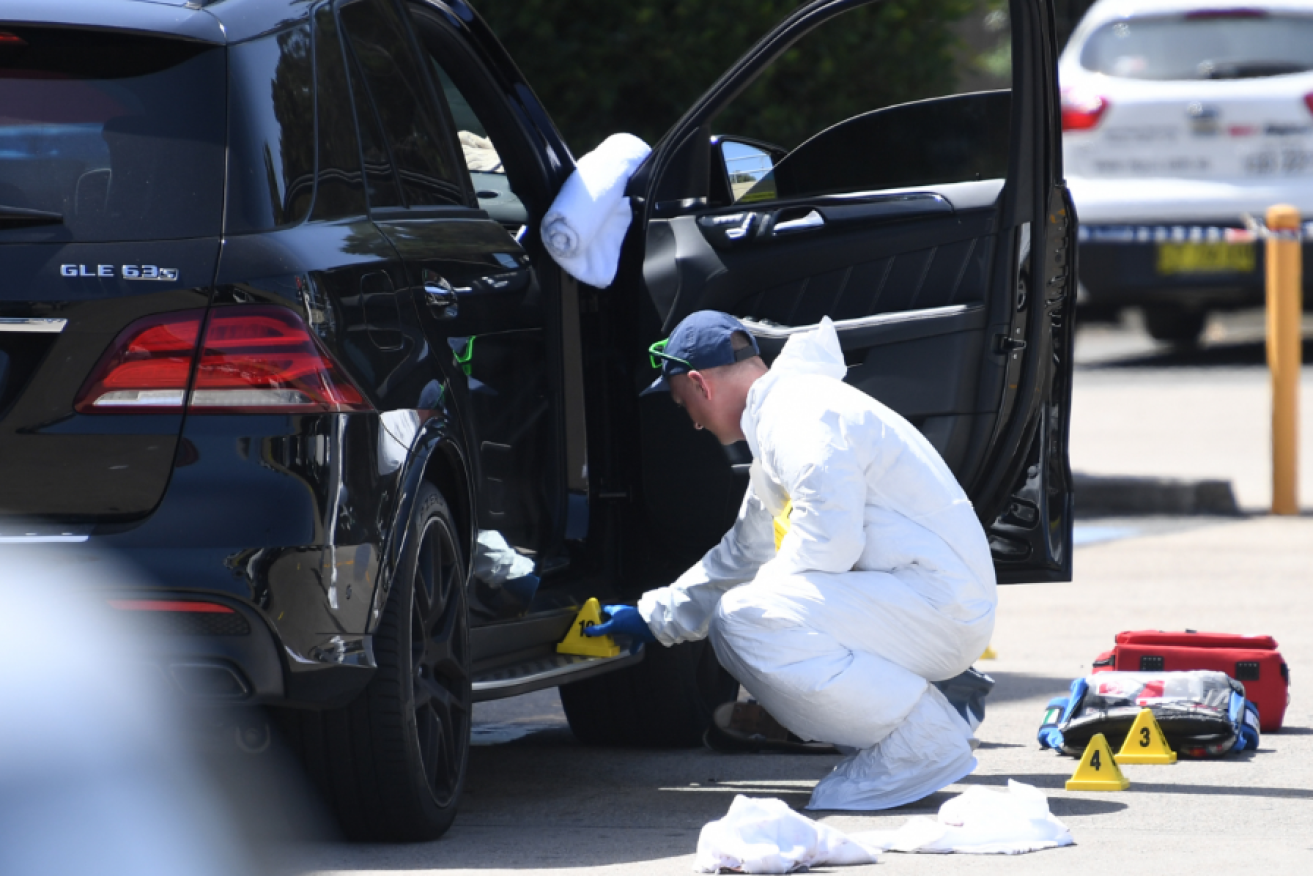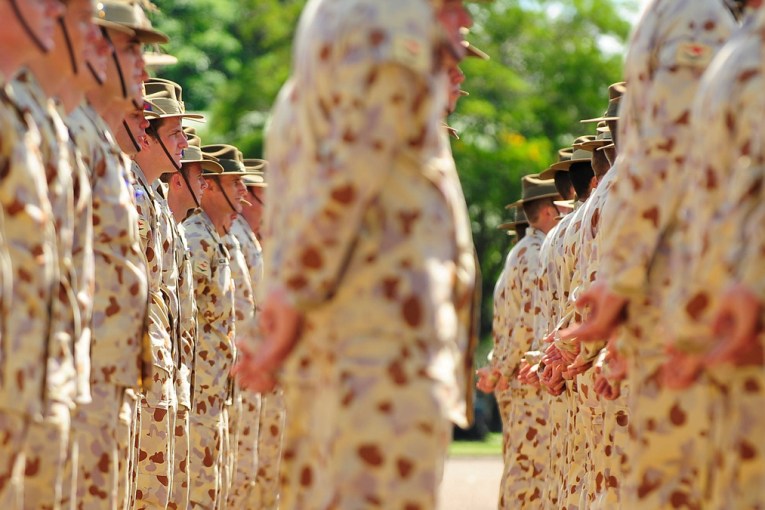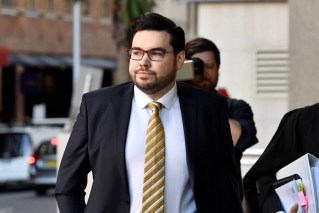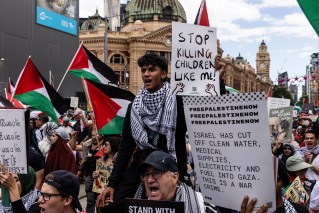The life, times and crimes of rubbed-out bikie boss Mick Hawi

A police forensics expert picks through Mahmoud "mich" Mawi's bullet-riddled SUV. AAP/David Moir
Former Comancheros boss Mahmoud “Mick” Hawi, gunned down this week outside a suburban Sydney gym, was a man who lived by the bikie code and “never snitched”, according to his followers.
Born in Beirut, Lebanon, the 37-year-old moved to Australia with his parents, brother and three sisters as a young boy in 1985.
He became national president of the Comancheros at 22 – just four years after joining the club – but it wasn’t until the infamous bikie brawl at Sydney Airport in 2009 that his name became more widely known.
Passengers in the terminal froze in fear as dozens of Comancheros took on members of rival club the Hells Angels whose associate, Anthony Zervas, was bludgeoned to death with a bollard.
Witnesses described the all-in brawl as chaotic, wild and uncontrolled. The men were “raging”, one said.
The violent escalation became the impetus for NSW Police to establish Strikeforce Raptor to target bikie activity.
Hawi served time in prison for his role in the killing, however, his murder conviction was quashed in 2014.

Mick Hawi (right) arrives at court for sentencing in 2015.
He pleaded guilty to manslaughter and was sentenced to at least three and a half years for that offence in the NSW Supreme Court in 2015. He was then released with time already served.
During his original sentencing, Justice Robert Allan Hulme described Hawi’s childhood as “uneventful, if meagre” as he considered the bikie’s background.
Hawi left high school at 16 to attend TAFE and took an apprenticeship with his father’s spray-painting business for several years before buying a car detailing business.
A refrigerated transport company Hawi set up in 2007 was “by all accounts a successful business” that also employed his father. The venture shut down when he was arrested over the airport brawl.
Hawi married his high school girlfriend, Carolina Gonzales, in 2012.
Justice Hulme said he did not have a history of drug or alcohol abuse and appeared to have led a “settled” life characterised by self-employment and involvement with his family.
“He has earned the reputation of a man committed to his family and supportive of his friends,’ Justice Hulme said.
While Hawi did not accept responsibility for the death of Zervas, he did exhibit “some regret”, the court noted.

Two black-clad figures flee the scene moments after Mick Hawi was cut down in a fusillade of shoots. NSW Police
The Motorcycle Clubs Australia Facebook page described him as a man who lived by the club’s principles and “never strayed” from the bikie code.
“He never snitched on a friend or brother even if he must take the fall,” the group said in a post.
Hawi’s criminal history was somewhat brief considering his status, and included a charge of assault occasioning actual bodily harm as a minor plus convictions for a number of driving offences.
He had also been fined for using offensive language and possessing a restricted substance.
Hawi was shot dead in a brazen daylight hit outside Fitness First at Rockdale, in Sydney’s south, at midday on Thursday.
He reportedly had a bounty on his head and there may have been bad blood between him and current Comanchero leader Mark Buddle.
-AAP








